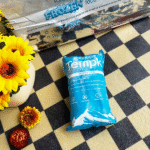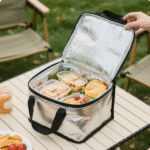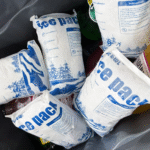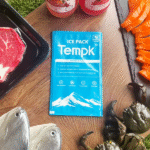Imagine um correio navegando ruas movimentadas da cidade, Balanço de velocidade com a necessidade urgente de manter os perecíveis frescos. Neste cenário de alto risco, Mochilas de entrega are no longer just carriers—they’re lifelines for preserving quality, reduzindo o desperdício, and meeting rising consumer expectations. As global demand for temperature-sensitive deliveries surges, these portable cold chain solutions are transforming how businesses tackle the “last-mile challenge,” ensuring everything from sushi to vaccines arrives in pristine condition.
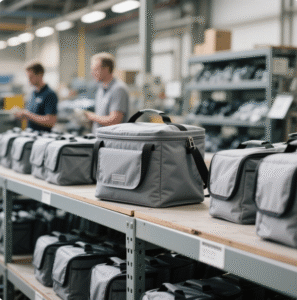
The Last-Mile Dilemma: Why Delivery Backpacks Matter
The cold chain industry loses over 30% of perishable goods due to temperature fluctuations during transportation, costing billions annually23. Traditional methods like refrigerated vans are energy-intensive and inflexible for urban deliveries, while single-use packaging exacerbates environmental harm. Delivery backpacks address these issues by:
-
Estendendo a frescura: Advanced insulation maintains precise temperatures for up to 24 horas, critical for pharmaceuticals (2° C - 8 ° C.) and fresh meals (0°C–5°C)2.
-
Enhancing Mobility: Leve, ergonomic designs enable couriers to navigate crowded areas efficiently.
-
Cutting Carbon Footprints: Reusable materials reduce plastic waste, aligning with global sustainability goals like the EU’s plastic ban3.
Tempk’s Thermal Backpacks: Onde a tecnologia encontra a sustentabilidade
Tempk, um líder em inovação em cadeia fria, redefines delivery backpacks with its UrbanGuard Series, designed for agility and intelligence in last-mile logistics:
1. Military-Grade Thermal Performance
Tempk’s backpacks feature aerogel-lined compartments e bio-based PCM gel packs, stabilizing temperatures between -20°C and 50°C. Testes independentes mostram um 40% slower heat transfer compared to traditional EPS foam, ensuring ice cream stays frozen and salads crisp even in summer heat3.
2. IoT-Driven Transparency
Embedded sensors monitor real-time temperature, umidade, and location. Data syncs to mobile apps, allowing logistics teams to receive instant alerts for deviations—a feature proven to reduce spoilage by 25% in pharmaceutical trials2. Customers can scan QR codes to view their delivery’s journey, enhancing trust and satisfaction.
3. Design Eco-Consciente
-
Materiais: Feito de 100% recycled ocean-bound plastics and FDA-approved liners, each backpack offsets 12 kg of CO2 annually.
-
Modularidade: Interchangeable parts extend product lifespan by 300%, while a buyback program converts retired units into raw materials for new products3.
4. Ergonomic Customization
-
Adjustable Compartments: Fit multi-temperature orders (por exemplo, hot pizza alongside chilled drinks).
-
Branding Flexibility: Fade-resistant prints and UV-resistant logos turn backpacks into mobile advertisements, boosting brand recall by 50%2.
-
Vedações à prova de adulteração: Color-changing indicators ensure package integrity, critical for high-value items like lab samples.
O futuro: Smart Backpacks as a Competitive Edge
With the food delivery market projected to hit $1.5 trillion by 2026, businesses prioritizing sustainability and transparency will dominate. Tempk’s backpacks empower companies to:
-
Reduce Costs: Designs reutilizáveis salvam $1,000+ annually per courier compared to disposable options.
-
Comply Globally: Meet FDA and WHO regulations effortlessly with audit-ready temperature logs.
-
Drive Engagement: Instagrammable designs and real-time tracking generate 3x more social media mentions23.
Conclusão
Delivery backpacks are no longer accessories but essential tools for resilient, eco-friendly cold chains. Tempk’s UrbanGuard Series exemplifies this shift, merging cutting-edge technology with environmental stewardship. As climate challenges and consumer demands intensify, adopting such innovations isn’t just smart logistics—it’s a commitment to delivering freshness, sustentabilidade, and trust in every step.
















